[Ed: This post is a continuation and conclusion to Part I of our discussion from last week]
Pete Fenzel: Putting this critique more clearly in the mouth of Superman would have been a good thing for BvS. Superman should not just object to Batman killing people in extreme circumstances. Superman should object to Batman so profoundly abandoning the pretense of a normal life by constantly escalating conflict. Clark Kent can’t live in a world where Batman drives a tank down the street and shoots people wearing leather jackets – there’s no freedom of the press, no Lens Crafters, no shopping bags with baguettes in them. Superman would do fine, but Superman doesn’t want to be Superman. He wants to be Clark Kent.
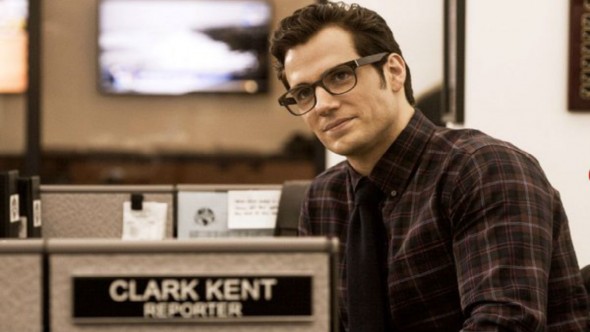
As it is, it’s not entirely clear why Snyder’s Superman objects so deeply to Batman, because Snyder’s Superman also kills people in extreme circumstances.
Really I think it’s a rejection of even the aspirations of normalcy. Which is perhaps why I sometimes feel that I am the one missing the point and younger guys actually really like movies like this, because in their experience they don’t really see a normalcy to return to where authority figures can be trusted and people can be collectively prosperous in a world that looks like home.
That’s a dream of the 70s, 80s and 90s, but not today.
Matt Belinkie: In the Snyderverse, there isn’t an expectation that your building won’t be destroyed by a CGI shockwave, because it definitely will.
Others have pointed out that this Batman is a lot like Rorschach from Snyder’s Watchmen. Maybe there’s a similar feeling there that society itself is diseased and any expectation of safety and normalcy is a joke.
But to be clear, we’re not saying that this Gotham City is more dangerous than other Gotham Cities we’ve seen. We’re saying that this Batman seems utterly unconcerned with restoring law and order. He’s the one escalating the level of violence.
Fenzel: This is I think partly where the dream sequences become problematic, and where the drastically shifting setting also becomes a problem.
There’s this idea throughout the movie that Superman is going out into the desert, either in Africa or Mexico or other places, and committing atrocities, even though Superman never does this. Lex Luthor frames him for a massacre in Africa (which makes no sense, as Ben pointed out in the podcast, because the people supposedly killed by Superman were obviously killed by bullets), and Batman has a dream of a dystopian future where Superman runs a fascistic paramilitary organization of some sort in a blasted Mad Max-esque wasteland. It is hinted to be a sort of Flash-inspired, time-travel propelled vision of an alternate future, but is never addressed again in the movie.
Plus you have Metropolis under seige during the events of Man of Steel — there’s very little sense to Batman in this movie of what any of these places are like on a day-to-day basis.
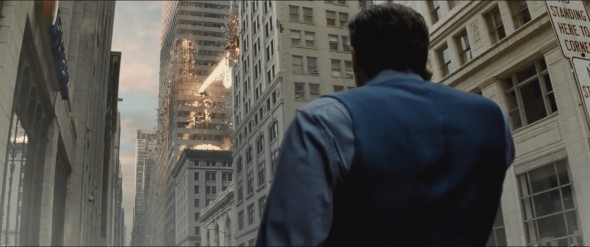
Another day in Metropolis!
I think Batman behaves from the beginning of the movie as if these dreams and visions and framings are all real, and the Man of Steel invasion is a normal thing that happens all the time, and there isn’t really a normal Gotham with bad crime and corruption but also people in it leading normal lives.
Which does sort of match up with our social-media-saturated hyper-reality where everybody thinks mass shootings and terrorist attacks are happening constantly everywhere. So it’s a legit experience of the present. But I’m not convinced of its veracity.
Belinkie: To be charitable, Batman seems to honestly feel like Superman is a potentially world-ending threat, which maybe justifies some collateral damage. He may be misguided in thinking this, but Batman literally believes he’s fighting to save the world.
Fenzel: Yeah, but Batman branded the guy for being a human trafficker.
He’s also doing other stuff.
His usual Bat duties.
Belinkie: Like branding.
Fenzel: You could also take Alfred at his word (which is hard because there are so many speeches like this in the movie that contradict each other and it’s hard to tell which to listen to) that confronting the level of destruction caused by Superman has made Batman feel powerless, and his increased cruelty is a result of his feelings of powerlessness, not any practical concerns.
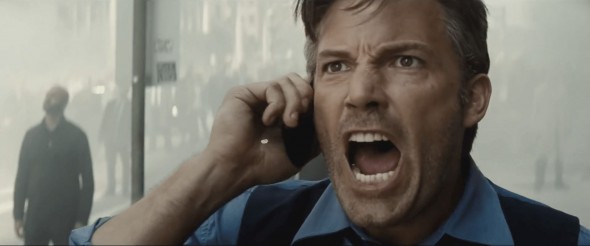
I mean, Alfred in the movie comes up just short of conducting an intervention with Bruce Wayne. He’s clearly worried about his mental health. But the trick there is we never see what “normal” Batfleck looks like. Just really angry and cruel Batfleck.
And he never steps back and goes “whoa” about the collateral damage he causes. Just about almost killing Superman. So without a basis for comparison, it comes off as his core character and not an aberration.
Belinkie: I remember after Man of Steel, Snyder hand-waved a lot of the controversy by saying “Well Superman hasn’t really established his code yet. He’s not fully formed. His character will become more like what you know in future movies.” This Batman seems like the same excuse. “Oh, this isn’t normal Batman. We’ll get there.” But what kind of bizarre way to build a franchise is that?
Fenzel: It’s Marvel backwards, and it’s made worse by the expectations Marvel has set up. It’s telling The Avengers before you tell Iron Man.
Richard Rosenbaum: Batman using guns so flagrantly there would have been extremely effective* if* he wasn’t such a psychopath in the “real life” parts of the movie. He’s haunted by the memory of his parents and visions of bat monsters, he is afraid of the world and of what he is becoming. Afraid of what HE is becoming, NOT what Superman might be.
Matt, your citing Batman Beyond is very apt. Just picking up a gun in self-defense is enough to make him quit being Batman there – it makes him realize that his time is over, and a little later Terry McGinnis, who is young enough not to fall into the desperation to win at all costs, can pick up the cowl instead.
Belinkie: So what makes Batman Batman? It’s that we can trust him to have restraint. We can trust him to do the right thing. That’s what makes him not just a vigilante but a knight.
Jordan Stokes: That’s a big part of it. He’s a man who is answerable only to himself. He doesn’t recognize the authority of the legal system. But he does answer to his own moral code. That’s an important part of the fantasy — the idea that it would be really good if there was a person out there who wasn’t constrained by all the things that, as a society, we’ve all sort of agreed to be constrained by… as long as that person is on the right side.
I think, though, that that might fall under “necessary but not sufficient.” Because couldn’t you say the same thing about Superman and Spider-Man, and also Jack Bauer? And, like, Dexter? The code that each answers to is different, but they’ve all got the “he’s a loose cannon, but he’s OUR loose cannon” thing going on.
Fenzel: I think there’s one other element we’re not talking about, which is Batman’s general acrobatics, grappling hook antics, etc. Beyond just providing moral and character elements, not killing people with guns or other lethal weapons sets up a constraint that compels Batman to come up with creative solutions to fight scenarios. Batman is not Batman if he is not swinging around or jumping around or using climbing with ropes, or employing gadgets, batarangs, or smoke bombs, or at least something along those lines.
On a basic level, the Bat isn’t just about darkness and fear, it’s also about flying around at night, being hard to see, hanging from stuff, sonar. I don’t think he has to use all these things, but he should use some of them in one way or another. Maybe the notion that Batman can’t kill people is also important because it grounds and justifies his baroque approach to conflict.
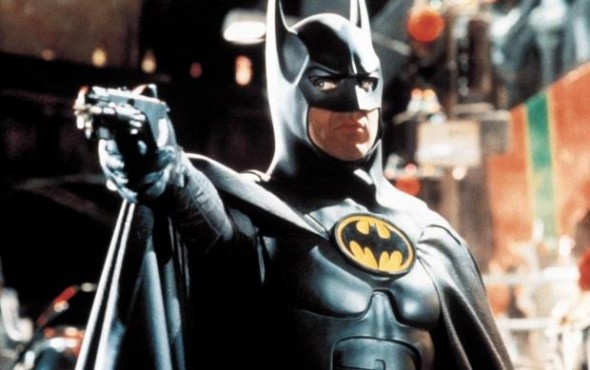
The ORIGINAL “wonderful toy”
And there’s an element of play to Batman’s use of his “wonderful toys,” which is lost if he is so angry and depressed that he is mass murdering people. Jack Bauer is never like “Society’s rules won’t let me do what’s necessary, and I have a code of good and bad that’s different from society, so I’m going to do a bunch of backflips.”
This is also part of Batman being a detective; Batman’s cases are needlessly complicated, and Batman’s solutions are also needlessly complicated, except it’s not needless, as the more straightforward way to do it would involve breaking his personal code (which includes both not being a murderer and not telling people who he really is).
Maybe that’s part of why all the Batman rogues have to be so strange; they each have to have a deeply ingrained reason that is intuitive to the reader that they don’t just use simpler, more obvious means to commit their crimes. And then Batman has his set of reasons for why he doesn’t use simpler, more obvious means to stop them. Frank Miller’s Batman is not the best Batman at this, but even he takes a certain amount of pleasure jumping through the air or walking on tightropes.
Belinkie: There’s a whole big facet of Batman we haven’t covered – his self-conscious theatricality. Superman isn’t trying to play a role – he’s just got someone to punch and that’s the only outfit he has that won’t disintegrate. Spider-Man is not trying to be a goofball to play a character – he IS a goofball. But for Batman, creating a sense of fear and menace is just as important as getting the job done. Batman is putting on a show every time he puts on the outfit. That makes him kind of unique. Daredevil, a close analogue in some ways, doesn’t seem to care much about intimidating people in the Netflix TV show. He spends the first season wearing a plain black outfit, because it’s the most practical option.
I think what a lot of people love about Batman is that he isn’t a guy who ends up with powers and decides to use him. He creates himself to fill a need. Interestingly, Superman is an adversary that’s immune to Batman’s usual schtick of fear and intimidation. The Batman voice doesn’t impress him.
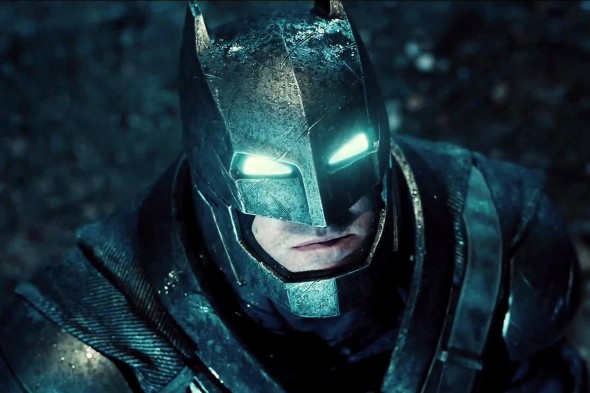
Fenzel: In summary, what makes Batman Batman?
- Batman has a specific costume and a secret identity.
- Batman can be trusted. He is a vigilante, but he does the right thing and upholds social values.
- Batman has a moral code that he holds to fiercely, even at significant cost to himself.
- Batman’s moral code makes things more difficult for him, so he has to come up with creative solutions to problems.
- Batman’s creative solutions often involve physical play, especially with technology-assisted acrobatics and stealth.
Snyder’s Batfleck has 1 and 3, but is lacking in 2, 4 and 5.
Well, he has 5 a bunch of times, but not consistently. Although I really like the idea that the creative solutions are _compelled_ by his moral code.
Spider-Man is like Batman, except his creativity is driven by the disapproval of the public. Whereas Batman’s creativity is more driven by the constraints of his ethics. Not that Spider-Man is unethical, but more that Spider-Man is more rarely confronted with problems that could be easily solved with murder. Or at least they aren’t painted that way. Spider-Man’s actual superpowers do make things somewhat more convenient and easier for him as well.
Stokes: Yeah, Spiderman walks around with tying-people-up devices attached to his wrists. It would be marginally more difficult for him to pick up a gun and shoot someone, in that he has to go through the additional motion of picking it up.
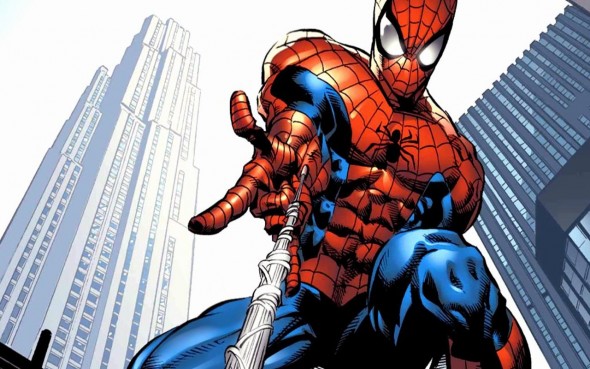
Spiderman is also more likely to fight villains with superpowers. Oh, punching this guy with spider-strength won’t work, because he’s the Juggernaut? Ok, well time to break out the full Rey Mysterio ensemble of sproingy rope techniques.
In the movies, at least, Batman’s villains have ranged from “mean guy with gun” all the way up to “several coordinated and well-supplied mean guys with guns.” Spiderman often tries overwhelming force (super-strength) and then has to get creative in order to scale up. Batman limits himself to underwhelming force.
Batman plays on hard mode, as it were.
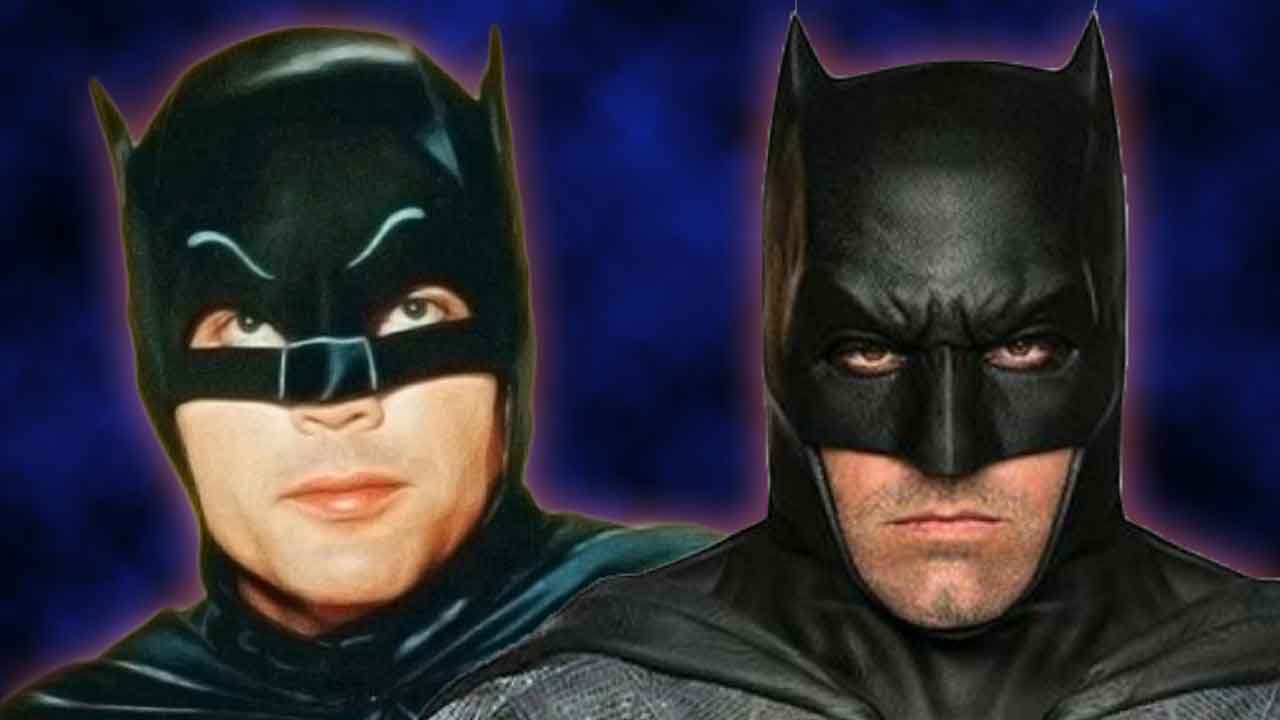
For the record, the missing quadrant of your Venn diagram is “Lex Luthor”…the overlap of money and trauma.
What’s Lex Luthor’s trauma? You’ve got me curious!
so what I’m talking about is not STRICTLY canon I suppose, but if you watched the Smallville show, Luthor had a disastrously disfunctional relationship with his abusive father. I can’t think of any examples where this is explored in the comics, but I LOVED THAT SHOW SO IT MUST BE REAL! ;p
There’s the abusive father angle and in Geoff Johns’ great Superman: Secret Origin, Lex’s home life is so poor and miserable he feels the need to reinvent himself completely.
In the old days the trauma was that Superboy cost him his luxurious orange hair.
I guess often in a way Lex is that interesting parallel of Batman without the life-shattering trauma. Lex rebuilt himself from his roots into what he felt was a god. This is made mockery of when what is pretty much an actual god shows up in his city.
This seems pretty spot on; and it explains why 70s batman also works; instead of having a moral grounding for his absurd and convoluted approach, he’s just a crazy weirdo investigating other weirdos.
But he’s still looking at nonsense, saying “of course, the pyramids of egypt!”, and then solving it by climbing up the side of gotham museum.
To flip that into a dark version, all you need is fill that criminal nonsense with associations of real psychological trauma and implied brutality, chuck more symbolism around to make his decision seem more plausible, and then make the acrobatic stuff less about colourful dancing, and more about silhouettes, speed, and film noir shards of light on gothic buildings. You don’t even need to take out the “thwack”s from the fights, as Grant Morrison’s brilliant run proved.
And once you have that, what you have is a driven man’s descent into a shadowy nightmarish world of neurosis and obsession, which he transforms through acrobatics and inventiveness into some kind of temporary justice. The longer the story arc, the more time batman spends brooding and fretting while ominous symbolic things happen, and the less time is spent on “I figured you out” -> “POW!” -> ” “well that’s him behind bars”.
The problem with BvS is that this is an example of a failed batman case, where instead of sitting on the edge of madness, he’s dropped over the edge as if the water’s surface isn’t there. He’s precisely the sort of character you can imagine batman dropping in on, standing in the corner, and groughly whispering something about his mother, causing this alt-batman to loose control completely, before he defeats him with some clever combination of ropes and grapples based on the fact that the special batsuit is incredibly heavy. And of course, in his early introductions, Jason Todd’s Red Hood was precisely this kind of villain.
The Red Hood is a GREAT point of comparison, because it’s all about Batman’s aversion to killing. It’s also about the death of Robin, and how Batman reacts to that. I mainly know the animated version of the story:
https://en.wikipedia.org/wiki/Batman:_Under_the_Red_Hood
Basically, the Joker kills Robin (in a brutal scene which Snyder would love), but he’s later revived via Ra’s al Ghul. The resurrected Jason Todd decides that Batman’s mistake is not to kill, since killing is the only thing that changes anything (and with the villains in Arkham escaping every five minutes, he might have a point). He does things like kill off some mob bosses to scare the rest into not selling to children. Notice that he doesn’t try to arrest them, which would just create more chaos and violence. Basically, Jason (who calls himself the Red Hood) is pragmatic and doesn’t hesitate to kill the bad guys in the name of making the city safer for the good guys. It’s not entirely clear he’s wrong – he gets results!
At the climax of the story, the Red Hood captures the Joker and presents Batman with a choice: either shoot the Joker, who clearly deserves to die, or Jason will shoot Batman. Batman then explains that he really really wants to kill the Joker, which is exactly why he can’t. Once he crosses that line he’ll never be the same, and he’ll become something he doesn’t want to be. Batman, of course, manages to sidestep the impossible choice by disarming Jason. The story ends with the Joker going back to Arkham, Batman going back to work, and Jason Todd missing… for now.
Basically, it’s a lot smarter about what makes Batman Batman than B vs S.
Isn’t that The Dark Knight, basically?
You know what, thinking about it, Jason Todd as a character is probably actually a meta-fictional response to the “Dark Knight Returns” era of characterisation; it is Jason Todd’s death that causes Batman to retreat from his sense of duty to Gotham in that comic, and his death is sometimes considered an inaugurating event of the gritty era of batman comics. So making the villain that represents a logical extension of that era into a literal resurrection of a symbolic character from it is a nice way to make that link.
Perhaps part of the problem with this film, is that Snyder was drawing from and pushing along a line of development in comic writing that has been heavily deconstructed over the last 20 years, meaning that comic fans already have been armed with the appropriate concepts to say “that’s not batman”, even if they can’t pin it down precisely. It’s not just that, as those deconstructions only found root because they were more effective expressions of what is interesting about Batman as a comic character, and people with very little knowledge of comics also found it unsatisfying, but still, he didn’t just start with a bad idea, but a bad idea that goes without at least 10 years of exploration of writing the character that directly reacts to it and shows it in a poor light.
Fenzel: “There’s this idea throughout the movie that Superman is going out into the desert, either in Africa or Mexico or other places, and committing atrocities, even though Superman never does this. Lex Luthor frames him for a massacre in Africa (which makes no sense, as Ben pointed out in the podcast, because the people supposedly killed by Superman were obviously killed by bullets),”
This is NOT what the movie says. The movie talks about the dead of people because the GOVERMENT or whoever got to that place after Superman appeared. You could say that he killed the terrorist that have Louis Lane, but is not clear
This part of the movie is very confusing.
What I gathered was the mercenaries who were at the place in Africa where Lois Lane is detained by the warlord during the supposedly-CIA-botched interview were employees of LexCorp. (Was the guy posing as a cameraman actually CIA? It’s possible he wasn’t, but I’m not really sure.)
Those mercenaries then killed a whole bunch of the people they were supposedly working with and left.
The guy in charge of them was Anatoli Knayezev, a.k.a. KGBeast, who is a DC Supervillain who was Lex Luthor’s “Double Dragon Abobo miniboss” in this movie. He later transported the Kryptonite and after that kidnapped Martha Kent and was killed, or at least very badly burned, by Batman.
It is not clear why the mercenaries kill the other guys working for the terrorist warlord, or why they are working for LexCorp secretly, rather than just out in the open, or why Lex Luthor’s main guy was there at the time.
The answer that makes sense was that they were there to kidnap Lois Lane to lure Superman there. That’s something Lex Luthor and other people with the same profession do a lot. And that they killed the other mercenaries in order to place Superman at the location of a murderous atrocity, and thus have him carry some measure of blame or public scrutiny for it.
Of course we don’t actually get to listen to the hearing where this is going to be discussed, as it is destroyed before anybody gets a chance to speak, again putting Superman at the site of an atrocity and somewhat implicating him in it in the public eye.
So, is the distinction whether Lex Luthor is actively getting Superman framed for doing these things, versus whether he is being put in the location where these things happen in the trust that the public will associate him with the negative things even though he didn’t do them?
Or is the distinction that there was some other reason Lex Luthor’s henchmen murdered the other paramilitary guys? It had to be related to Superman, right? Was there some other thing they were trying to do?
In retrospect I guess I do believe that, the way that news cycles work these days, Superman would carry a bunch of negative publicity and public shaming for being at the site of a bunch of atrocities, even if he didn’t actually do anything to make them happen and nobody really is saying he did anything to make them happen, as these days merely the association is enough to encourage shaming and guilt if that’s your opinion anyway.
But in that case it hardly seems like Lex Luthor needs to do all that much work. Superman is already doing this on his own, going around and getting a bad reputation because he lives in the social media age and despite working for a newspaper doesn’t know anything about PR or media relations.
Well actually ()… I don’t remember other atrocities were Superman is involved. Is the Zod Attack, The Africa first capture of Louis Lane, and then the bomb in the hearings…
Two of those things were “planned” by Lex. I agree he didn’t do some incredible impossible smart job, but he was smart to get advantage of how the media reacts, how people reacts, Louis Lane adventurous journalism, and…¿ having already a criminal organization working for him?
Again: Not perfect. Contrived perhaps. But enough for me, and definitely not unexplained or unreasonable.
I have not seen the movie but an Easter Egg that was pointed out on some other podcast is that the cameraman/undercover CIA operative killed in Africa is not addressed by name in the movie but is named in the credits as Jimmy Olsen. That just seems like more very Snyderish messing with the established canon.
Great read (even if I disagreed).
My only point: If even Batman IS what you guys says it is, THIS Batman is 20 years of a guy unchecked doing whatever he wanted to.
Power tends to corrupt, and absolute power corrupts absolutely…plus trauma, plus Aliens attacks on earth…
I just don’t think is THAT weird. This is Justice League Origins, and even if is a mess (this should’ve been TWO movies), gives reasons to:
Batman: Colaborate with Superman and get cheked by him in terms of use of violence and paranoia
Superman: Colaborate with Batman and stop being worry about what people says and do good anyway (we sure now this Batman does not care)
Both: Superman can use better strategy and Batman more pure power, then together stop destroying the world while fighting…
(I know the movies doesn’t SHOW any of these things, but clearly set up this)
PD: Nope, I’m not a 14 years old guys….
I feel like this is an idea that Snyder has trotted out, about both Man of Steel and BvsS. “Sure, these aren’t the characters you guys know and love… yet. But we’ll get there!” On the one hand, that makes sense. On the other hand, we’re five hours into the DC film universe, and there aren’t a whole lot of likable characters yet.
And yes, there is a chance that the characters barey show any internal change in the next Zach Snyder movie, only pretending to change. If that happens, I probably would like and enjoy the movie anyway, but I wont pretend it makes sense
the strength of the Marvel movies lies not in their plotting (which is as stupid and absurd as the DC movies) but, in their CHARACTERIZATION. dumb as it is, The Avengers stars the Marvel Heroes that i grew up with, NOT some 21st century retcon.
Too many easy jokes on those movies… Way.Too.Many.
Guys, one more thought to add. I’ve been watching Daredevil, and that’s a character who is clearly inspired by Batman in a lot of ways. But one key difference is that Daredevil is working class poor protecting working class poor, and Batman is CRAZY RICH protecting working class poor. There’s a sense that Bruce Wayne is aristocracy. He protects the city partially because he IS the city, even though he lives in a barricaded mansion. Daredevil grew up in the neighborhood and he’s basically trying to make his own neighborhood a better place.
A question about that:
Why we shuold think that Batman protects the working class? I mean, I guess that Bruce helps somehow with money, but Batman is always acting off the traumatic event. He attacks the violent criminal acts (that did bad to him in the past).
I don’t see Batman as a protector of anything really, because he always goes against the violent crimes, the street criminals or even the mafia bosses, but he nevers acts against the corruption. He doesn’t put in the uniform and beat the heck out of a corrupt police officer/politician, so I think that, everytime he “transform” himself into Batman, he’s just fighting against the people that did bad to him, in a way, not helping “the poor” in particular.
While depends on which version of Batman we’re watching, but he does seem to understand that crime increases with the unemployment rate. In the ’90s Animated Series, Bruce Wayne works hard to bring new jobs into Gotham and shows up to charity causes. I remember a couple episodes where he specifically protects the poor of Crime Alley from ruthless developers, which is basically he plot of Daredevil season 1. The Nolan Batman films even hint at the economic impacts that lead to crime.